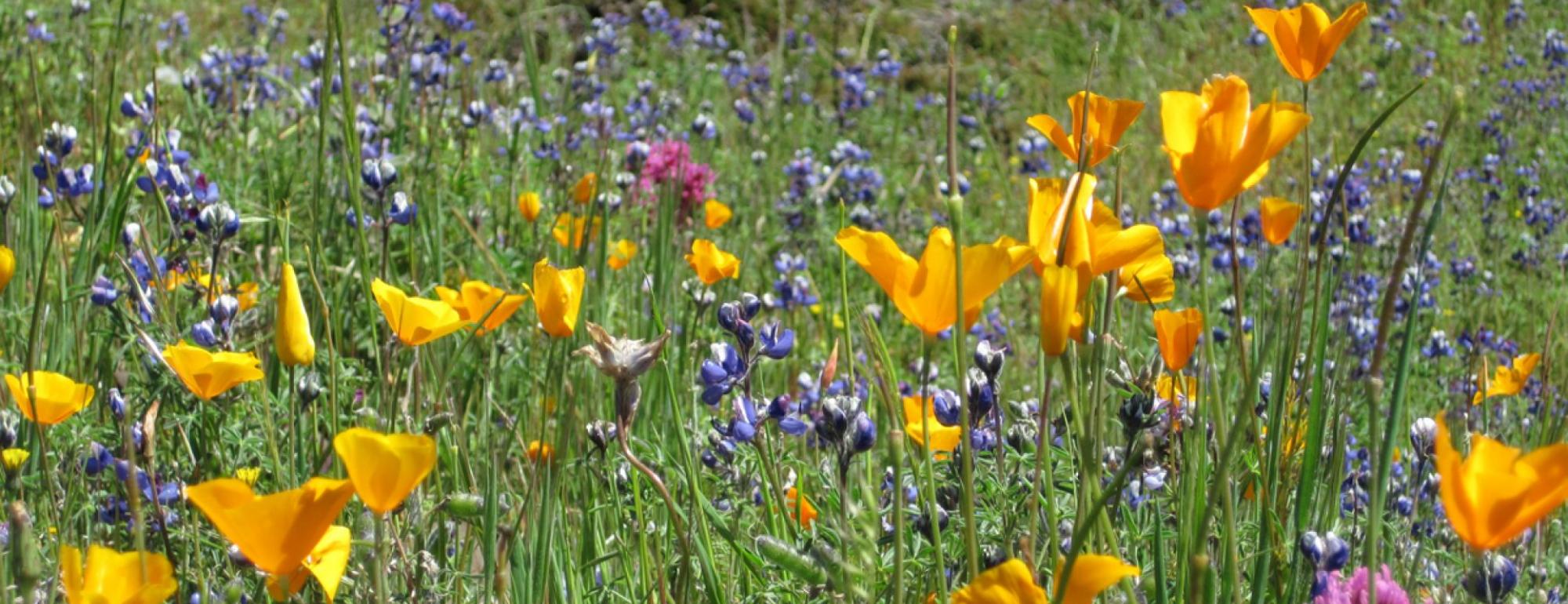Welcome to the Eviner Lab!
Focal Research:
The following topics are addressed through a range of projects that improve our understanding and management of invasions, restoration, ecosystem services, species conservation, global change, and range management.
1. Effects of plant community composition on ecosystem processes and properties.
Plants not only respond to their environment, they can actively alter almost every aspect of ecosystem structure and function. We are particularly interested in understanding their effects on soil processes that mediate nutrient, carbon and water dynamics. We seek a mechanistic understanding of:
- The effects of multiple plant traits on multiple ecosystem processes.
- How plant species effects change across sites, environmental conditions, management practices, and time
- The effects of mixed-species communities. These effects often cannot be predicted based on the effects of the component species in monoculture. We are investigating how species effects change depending on the identity, density, and diversity of neighboring species.
- How plant communities impact other key organisms, which are important players in mediating ecosystem processes (e.g. gophers, voles, microbes, livestock).
2. How plant physiology, populations and communities are impacted by their biotic and abiotic environment.
We are currently able to predict plant distribution across broad environmental gradients based on plant traits. However, we are usually still unable to predict and manage species interactions at a given site, and under changing conditions. We seek a better understanding of plant interactions by investigating:
- How plant traits and resource use shift in response to environmental changes (e.g. precipitation change, nutrient deposition, management practices, elevated carbon dioxide and ozone).
- How plant traits determine competitive interactions, and how these vary with environmental conditions.
- How management practices can shift species composition (e.g. eliminate invaders, favor natives) by manipulating resources required by plants (e.g. the timing, type, location, ratios and amounts of water and multiple nutrients).
3. Feedbacks: How plant effects on soils alter plant community interactions. How environmental changes shift vegetation composition, leading to a further changes in the environment.
Long-term management of vegetation composition and ecosystem processes requires an in-depth understanding of their interactions. For example, if invaders alter soil to benefit themselves, successful restoration of native vegetation may require soil amendments. Similarly, direct effects of global changes on ecosystem processes may be small, or opposite in direction, compared to the effects mediated by shifts in plant composition.
- To what extent do plant effects on soils mediate community interactions?
- How do the strength and nature of feedbacks change over time and environmental conditions?
- Which aspects of plant effects on soils are most important in shaping community interactions? How does this change over space and time?
- How long do species effects on soil last after the species have been replaced? To what extent does this depend on how long the species was present? Which feedbacks have a strong legacy?
4. Ecological toolbox for sustainable ecosystem management.
We actively collaborate with a diversity of land managers in our research. Not only does this allow us to apply our research to real-world situations, but it also provides unique research opportunities for understanding complex systems. By trying to reliably manage for specific goals, we are constantly aware of short-comings in our ecological theory. The previous three research topics are synthesized in our efforts to develop better management practices based on our latest results. We are particularly involved in: invasive species control, conservation and restoration of native and rare species, and management for ecosystem services (e.g. control over erosion, water quality, soil fertility, carbon sequestration, water storage and flow).
- What are the most effective ways to reliably manage for target plant communities, and/or multiple ecosystem services?
- How do these management strategies change over space, time, and shifting environmental conditions?
Research Approach:
While individual research projects fall everywhere along the applied to theoretical spectrum, most of the lab’s research is based on the premise that we can simultaneously address cutting-edge conceptual questions and applied issues. We work closely with land managers to: (1) Identify theoretical gaps that are critical for management, and (2) Use ecosystem management as the ultimate test of how well we understand complex ecosystems.
Most projects use a suite of research approaches, including: experimental manipulations in the field, greenhouse and growth chambers; field observations and natural history; and working with land managers to use their management as long-term manipulative experiments to test ecological interactions over time and space.
Affiliations:
Home Department: Department of Plant Sciences
Graduate Groups:
